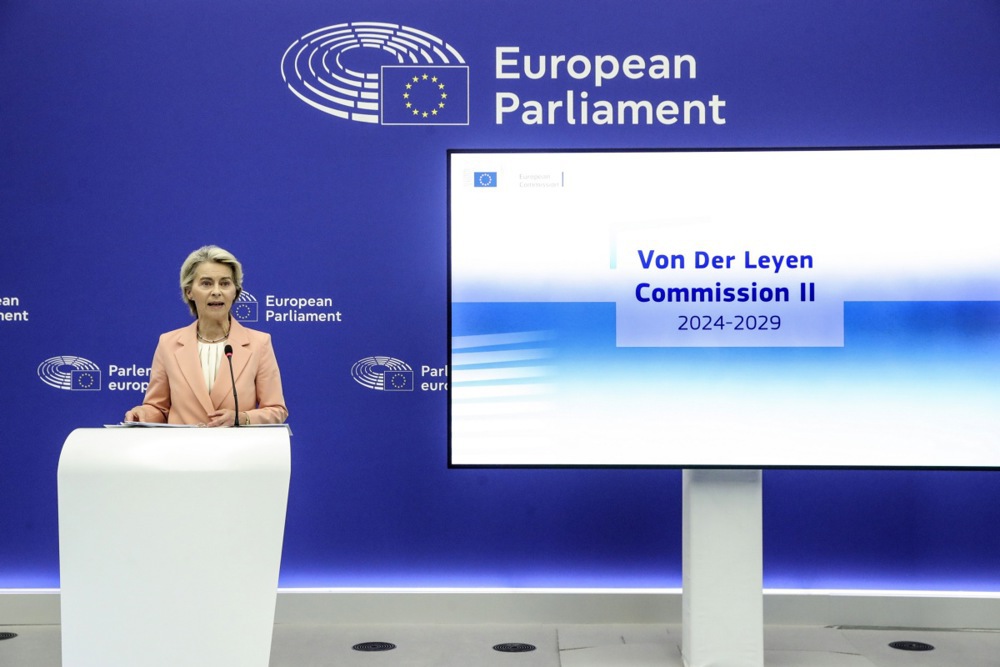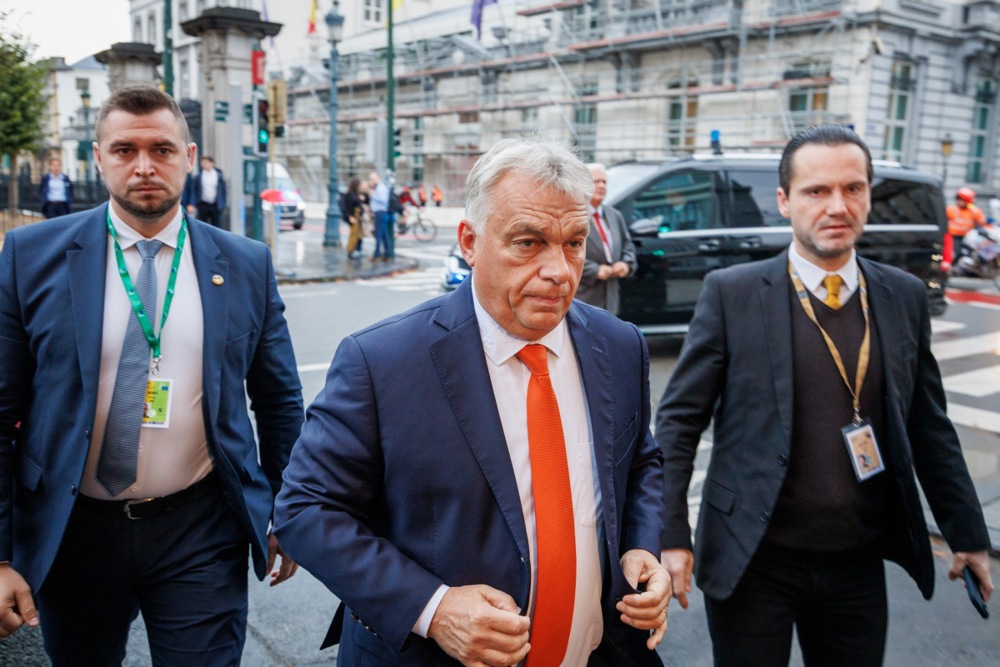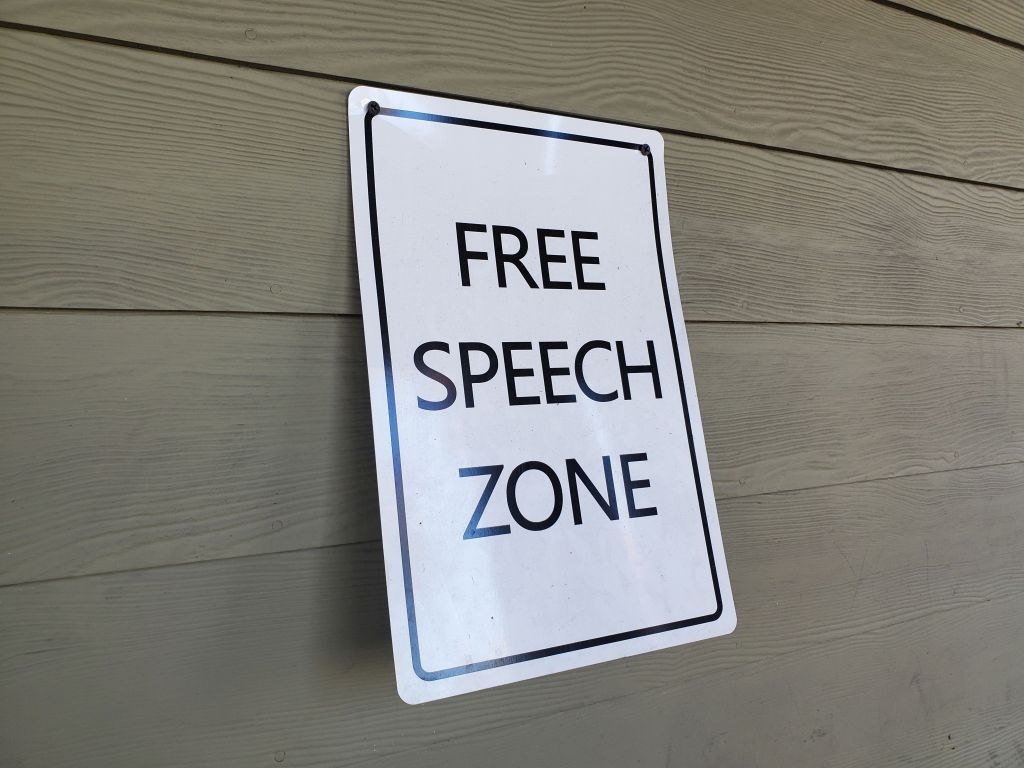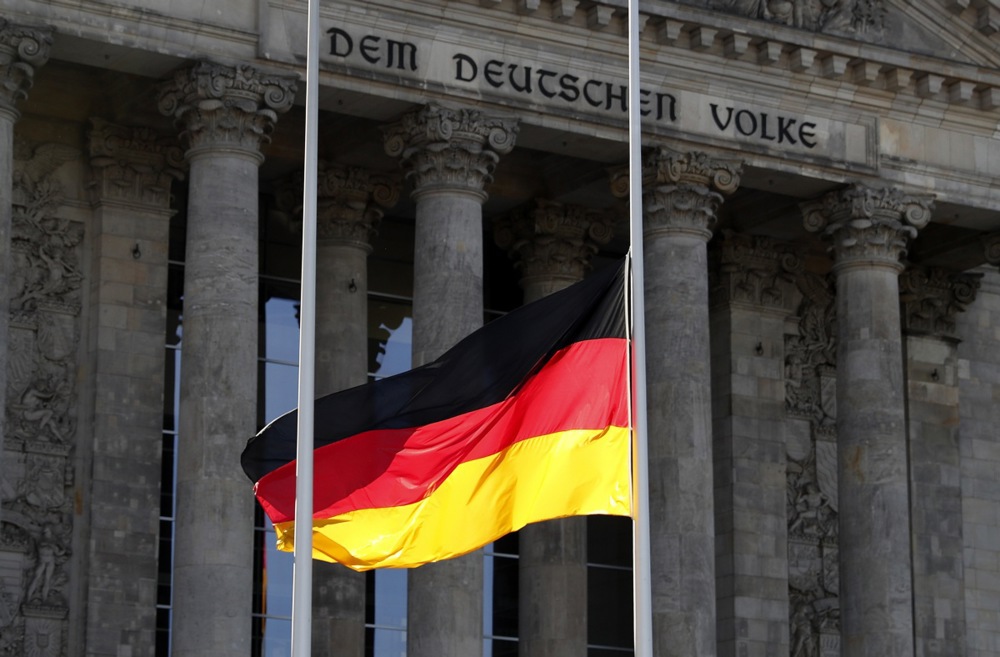The European Union has long loved lecturing others on their behaviour but when it comes to holding itself accountable, the bloc often goes silent.
That was the view of the CEU Democracy Institute, which is part of the private Central European University.
In its report released October 28 the Institute criticised the EU’s lack of introspection regarding its own rule-of-law standards.
Led by the Rule of Law Clinic of the Democracy Institute, the 38-page document, entitled Rule of Law Beyond the EU Member States: Assessing the Union’s Performance, argued that, while the European Commission investigated the rule of law across member states, it neglected to assess its own actions within the EU framework.
The Institute said the EU’s anti-corruption policies were insufficient regarding its own institutions and that EU policy towards corruption in those was not enough.
Recent reforms — such as the mandatory transparency register for meetings with lobbyists shared among the European Parliament, European Council, and EC; a six-month “cooling-off” period for departing MEPs; and the obligatory declaration of assets and potential conflicts of interest – are decried for what was described as their lack of enforcement and effectiveness.
According to the CEU Democracy Institute, the six-month cooling-off period was particularly inadequate.
“The cooling-off period of six months for MEPs is arguably too short as this is the least active time for the new compositions, while MEPs receive the transitional allowance in accordance with the length of service, as a rule, for longer than six months,” the report said.
The Institute also warned of “politicisation” of the rule of law within the EC.
“The politicisation of the Commission’s formal rule of law assessments seems to be an increasingly shared diagnosis. A former transport minister claimed in March 2024 that the Commission’s technical experts were being overruled politically with the Commission releasing post-Covid recovery funds to Romania despite Bucharest’s failure to implement required reforms,” it said.
NGO Transparency International EU has criticised the European Commission candidate audit process, saying it is rushed, superficial and opaque and casting doubt on the process. https://t.co/ipYTMu1fD0
— Brussels Signal (@brusselssignal) October 24, 2024
It argued that such revelations raised serious concerns about the legitimacy and credibility of EU institutions that were meant to uphold the rule of law.
“When these bodies prioritise political expediency over rigorous, independent reviews, they undermine their own authority, casting doubt on their ability to enforce rule-of-law standards impartially across member states,” the report asserted.
The Rule of Law clinic report also points out gaps in the system of judicial protection in the EU saying that there is limited access and transparency of the Court of Justice of the European Union (CJEU) and limited scope of power.
“According to the general rule under Article 24 TEU, the CJEU shall not have jurisdiction with respect to Common Foreign and Security Policy. Despite an exception from this general prohibition the exclusion of CJEU jurisdiction is problematic from the rule of law perspective and consistency of the EU justice system,” they wrote.
The Institute called for urgent self-accountability within the EU by addressing the shortcomings it outlined and committing to annual independent reviews of the bloc’s adherence to rule-of-law principles.
“Measuring the European Union by its own Rule of Law standards is the only way to increase its legitimacy and improve its performance. Our report aims to bridge this significant gap in ensuring the rule of law is foundational to the European Union – as a whole,” said the founder of the CEU Rule of Law Clinic, Professor Dimitry Kochenov.
The European Commission says it has assured that a “robust system” was in place to ensure that all EU institutions uphold the rule of law.
In a statement to Brussels Signal on October 29, the executive emphasised that “the rule of law is a founding value of the European Union, which all EU institutions and bodies are bound to respect”.
They highlighted the various bodies overseeing accountability within the EU, including the European Public Prosecutor’s Office (EPPO), responsible for investigating and prosecuting crimes affecting the EU’s financial interests; the European Anti-Fraud Office (OLAF), which handles fraud, corruption, and misconduct within EU institutions; and the European Court of Auditors (ECA), which evaluates the legality and regularity of EU actions.
On October 21, the ECA issued a warning regarding an increased risk of “double funding” within the EU’s €148 billion Recovery and Resilience Facility (RRF) — a concern the European Commission has downplayed.
The European Court of Auditors, the EU’s finance watchdog, has issued a warning about what it said was the growing risk of so-called double funding under the bloc’s Recovery and Resilience Facility. https://t.co/wkKzjuRHLP
— Brussels Signal (@brusselssignal) October 22, 2024
The EU Ombudsman, responsible for conducting fair and impartial investigations into EU institutions and administration, has also expressed concerns.
It would be misleading to paint a completely positive picture of the integrity of EU institutions
On October 10, EU Ombudsman Emily O’Reilly raised her concerns regarding various ethical issues within the EU administration.
O’Reilly cautioned against overly optimistic portrayals of the integrity of the bloc’s institutions, pointing out that various examples of corruption had occurred.
She added that numerous incidents were deemed legal but had “insidiously” undermined public trust in democracy.
O’Reilly highlighted what she called the “soft” corruption resulting from conflicts of interest created by the “revolving door” between the private and public sectors.
In April, the European Parliament voted to join the inter-institutional EU Ethics Body but critics have argued that the new organisation would not have much effect.
The EP has been under scrutiny in 2024 about rules suspected of fostering corruption, such as those on MEPs’ “side jobs”.
Think-tank MCC Brussels had cast doubt on the Ethics Body’s efficacy in combating corruption, stating: “It is just another way to ignore the democratic black hole at the heart of Brussels.”
EU officials have maintained this new ethics body was sufficient.
“In May, EU institutions signed an agreement to establish the first-ever inter-institutional Ethics Body, which will set common ethical standards and provide a co-ordinated framework for ethical oversight across institutions,” they told Brussels Signal.
“Thanks to these changes, EU politicians will be subject to common, clear, transparent and comprehensible standards,” the officials added.
Anti-corruption NGO calls for EP ban on MEPs’ side hustleshttps://t.co/04rHgQ4z3N
— Brussels Signal (@brusselssignal) May 6, 2024





